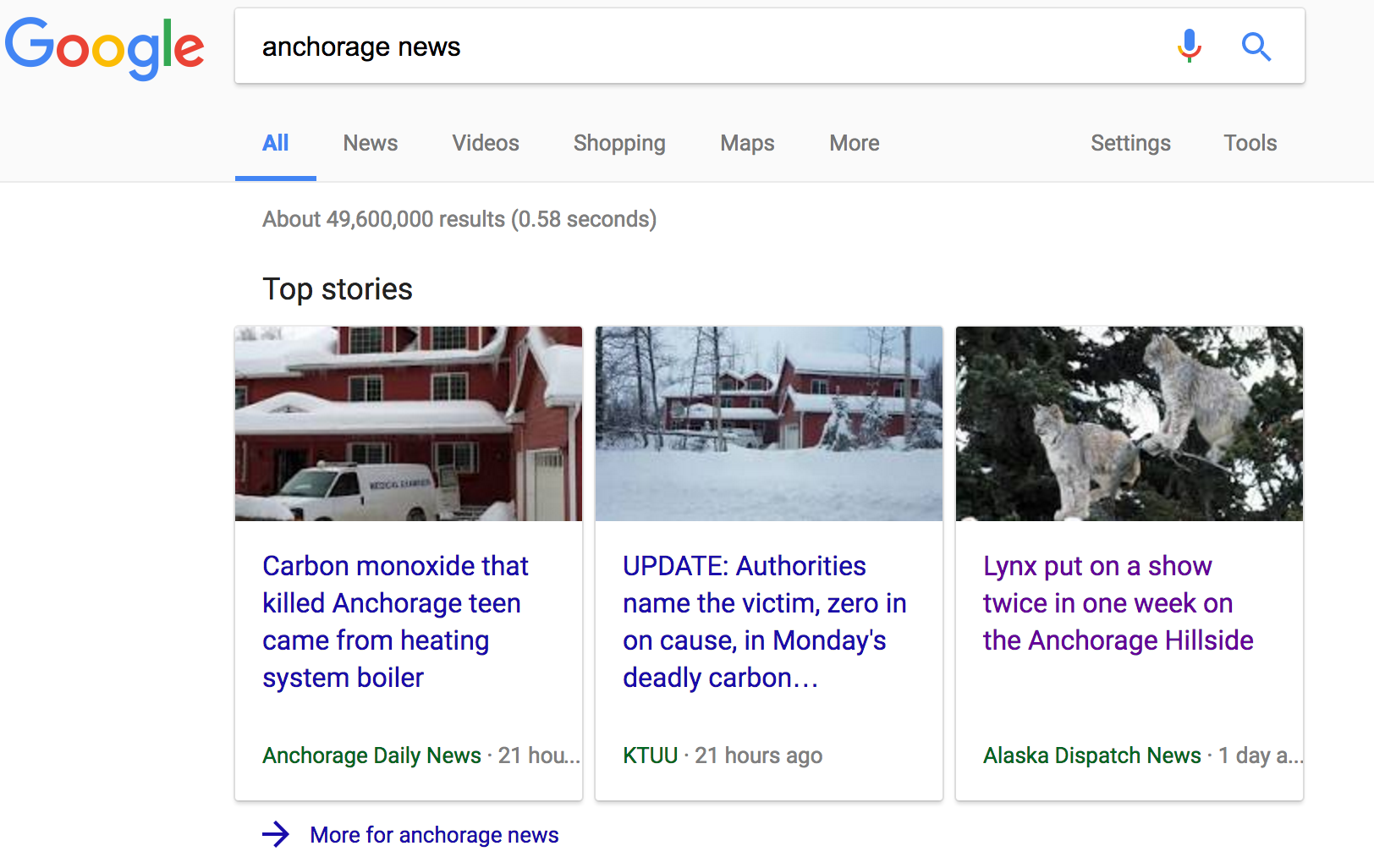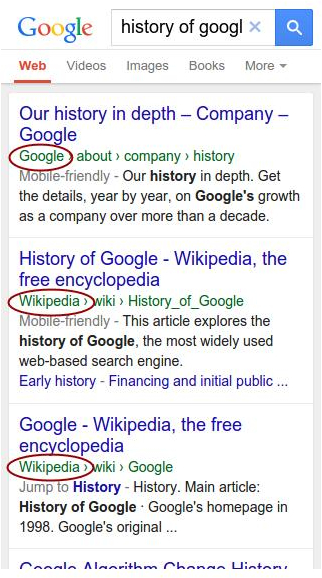Anchorage Daily News was purchased by Alaska Dispatch News a couple of years ago and we've since completely changed our site and infrastructure. However Google Search (and Bing) keeps displaying Anchorage Daily News in the top stories cards when you search for things such as 'Alaska News'. It also keeps mis-representing some of our section pages, and appends - Anchorage Daily News to the end of the search result. See the screenshots for examples.
It should say Alaska Dispatch News and seems really inconsistent with the results, sometimes displaying both on the same carousel.
Neither our articles, section pages, or other pages have any mention of Anchorage Daily News in the meta data. Our meta data should be all setup properly, utilizing opengraph, ld+json and proper HTML for stuff like the title, description, etc.
Here are some examples:
https://www.adn.com/section/alaska-news/
Our site name is correct in the Google Webmaster tools, and the Google News publisher panel. It's almost as if some external source is telling the search engine that Anchorage Daily News still owns these pages, but I can't figure out what it is. One of the more recent changes I've made is I've added NOODP to the robots meta tag to prevent it from getting data from DMOZ and requested Google re-crawls the site but it hasn't done so yet. Is there anything else I could be missing?
Any help would be greatly appreciated.




Anchorage Daily Newsand found quite a few places where the old name is still used. Not sure what the effect of this is, however, you may be able to contact some of these and get the sites updated. For example, HuffPo, offers.com, CrunchBase, etc. That may help. This is a Googleism. There may be little you can do other than what you have done and correcting any sites that exist and waiting.